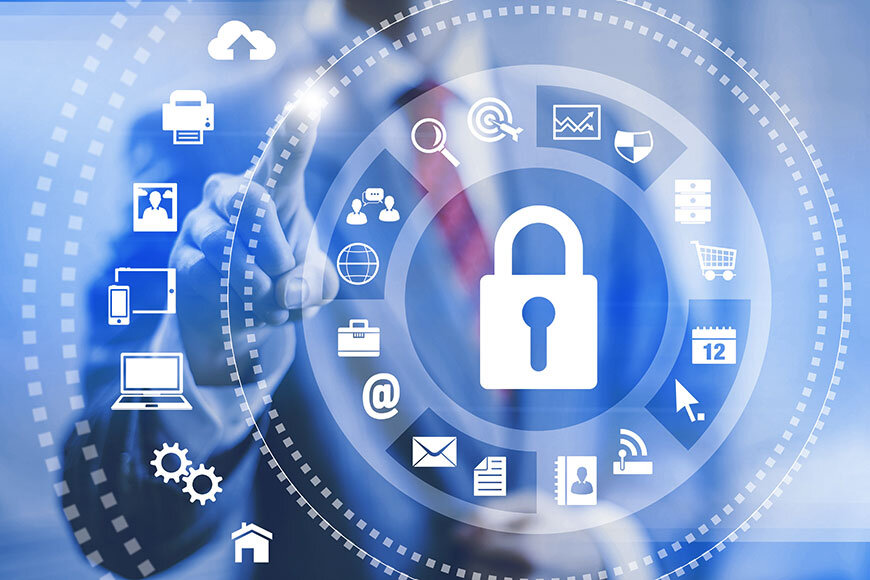
You can’t say enough about how important cybersecurity is in the digital world, where information runs like a river and new technologies move us forward all the time. Companies need to strengthen their defenses against cyber threats more than ever as they depend more and more on digital assets.
So, you should know that cybersecurity auditing is here to save the day with its proactive and strategic approach, protecting your digital fortress.
What’s Its Purpose?
Organizations rely on cybersecurity audits to keep an eye on their digital defenses and make sure they’re up to snuff in the ever-changing world of cybersecurity. Let’s explore their advantages in greater detail, shall we?
Identification of Vulnerabilities

Basically, it acts as a digital detective, scouring the organization’s network, systems, and applications for potential vulnerabilities. These vulnerabilities could range from outdated software and misconfigured settings to unpatched systems, providing potential entry points for cyber adversaries. Read more on Rekord.
Risk Assessment and Mitigation
Conducting one involves a comprehensive risk assessment, evaluating the potential impact and likelihood of various cyber threats. By identifying and quantifying risks, organizations can prioritize mitigation efforts and allocate resources effectively to address the most critical areas of vulnerability.
Compliance Adherence
Many industries are subject to regulatory frameworks and compliance standards governing the handling of sensitive data. Cybersecurity audits ensure that the organization is adhering to these regulations, helping to avoid legal consequences and reputational damage. It acts as a compass, guiding the company toward a secure and compliant operating environment.
Protection of Sensitive Data
In the digital era, data is a priceless asset, and protecting sensitive information is a core objective of cybersecurity auditing. Whether it’s customer data, intellectual property, or proprietary business information, audits scrutinize access controls, encryption methods, and data storage practices to prevent unauthorized access and data breaches.
Incident Preparedness and Response Planning
Cybersecurity audits play a crucial role in enhancing an organization’s preparedness for potential cyber incidents. By identifying weaknesses in incident response plans, audits enable companies to refine and bolster their strategies, ensuring a swift and effective response in the event of a security breach. Read more on Security Boulevard.
Continuous Improvement and Adaptation
The digital landscape is dynamic, with new cyber threats emerging regularly. Cybersecurity auditing is not a one-time event but an ongoing process that adapts to the evolving threat landscape. It fosters a culture of continuous improvement, enabling organizations to stay one step ahead of cyber adversaries through regular assessments and adjustments.
Cost Savings in the Long Run
The cost of a cybersecurity breach goes beyond immediate financial losses. It encompasses reputational damage, legal repercussions, and the potential loss of customer trust. Investing in regular cybersecurity audits proves to be a cost-effective strategy in the long run, as it helps prevent incidents that could incur far greater financial and non-financial losses.
Protection of Intellectual Property
For companies heavily reliant on intellectual property, these audits are a crucial line of defense. By fortifying digital boundaries, organizations can protect their proprietary information, trade secrets, and innovations from theft or espionage, preserving their competitive edge in the market.
Customer Trust and Brand Reputation
In an era where trust is a currency, the ability to demonstrate a commitment to cybersecurity enhances customer trust and brand reputation. Knowing that their data is secure and that the company is actively safeguarding against cyber threats, customers are more likely to remain loyal, and prospective clients are more inclined to engage.
Competitive Advantage
In a competitive business landscape, the ability to demonstrate robust cybersecurity practices becomes a differentiator. Companies that invest in these audits and communicate their commitment to security gain a competitive advantage, attracting partners, clients, and collaborators who prioritize security in their business relationships.
How to Conduct a Cybersecurity Audit?
For starters, you need to clearly define the objectives of the cybersecurity auditing process and establish the scope of the assessment. Determine the specific systems, applications, and processes that will be included in the audit, ensuring a comprehensive evaluation.
Next, create an inventory of digital assets, including hardware, software, and data repositories. Classify assets based on their criticality to the organization’s operations. This step provides a foundation for prioritizing security measures and allocating resources effectively.
As we’ve mentioned above, conduct a thorough risk assessment to identify potential threats and vulnerabilities. Utilize threat modeling techniques to analyze potential attack vectors and assess the likelihood and impact of various cyber threats. This step forms the basis for risk prioritization.
You should also evaluate the existing cybersecurity policies and procedures in place. Ensure that they align with industry best practices, regulatory requirements, and the organization’s specific needs. Identify any gaps or areas that require enhancement.
Lastly, you need to assess the security of the organization’s network infrastructure and systems. This includes evaluating configurations, access controls, encryption methods, and intrusion detection/prevention systems. Identify and remediate weaknesses that could be exploited by malicious actors.